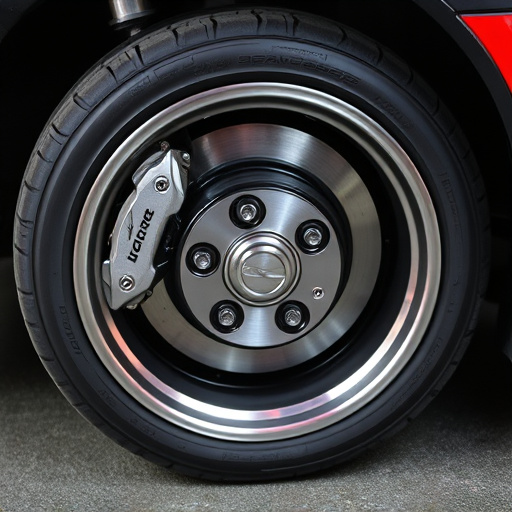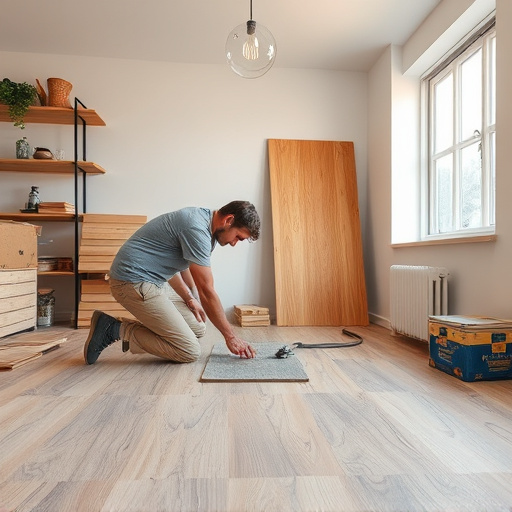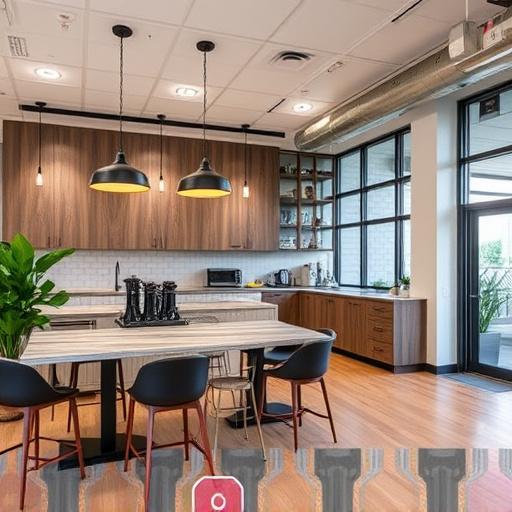Understanding and categorizing waste during a flooring remodel is key for efficient management. Plan for sustainable disposal by choosing eco-friendly materials, recycling old flooring, and researching local recycling centers. Implement effective waste collection strategies with designated areas, specialized bins, and tailored solutions for seamless project execution and environmental responsibility.
When undertaking a flooring remodel, proper waste disposal is more than just a chore—it’s an opportunity to minimize your project’s environmental impact. This guide navigates the process, starting with assessing the diverse types and quantities of flooring waste generated. We then delve into sustainable disposal methods, emphasizing responsible recycling and repurposing strategies. Finally, we explore efficient collection techniques to ensure a seamless and eco-friendly flooring remodel experience.
- Assess Flooring Waste: Types and Quantities
- Plan Sustainable Disposal Methods
- Implement Efficient Collection Techniques
Assess Flooring Waste: Types and Quantities
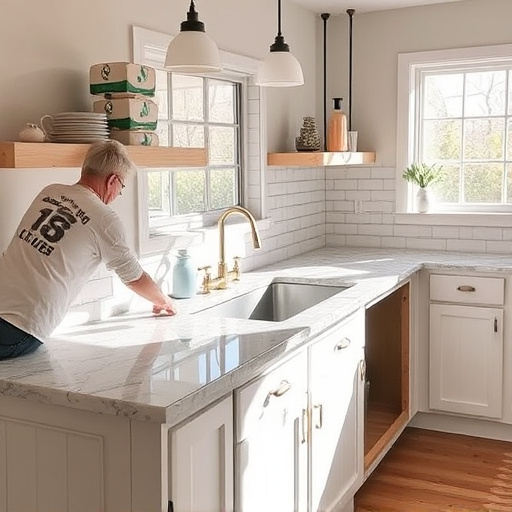
Before tackling any flooring remodel project, it’s crucial to understand the types and quantities of waste that will be generated. This initial assessment is a fundamental step in efficient waste disposal planning. Flooring materials, from wooden planks to tile or carpet remnants, can vary significantly in their composition and potential recyclability. Proper categorization begins with identifying the primary materials used in the existing flooring and any associated underlayments. For instance, removing old hardwood floors might leave behind not only the wood itself but also adhesive residues and protective coatings.
In a residential renovation context, exterior painting projects can also contribute to the waste stream during a flooring remodel. This includes paint cans, brushes, rollers, and even contaminated debris from preparing surfaces for new flooring. By accurately gauging these aspects early on, homeowners or contractors can better decide between reuse, recycling, or safe disposal methods, ensuring that renovation services are conducted responsibly and in line with local environmental regulations.
Plan Sustainable Disposal Methods
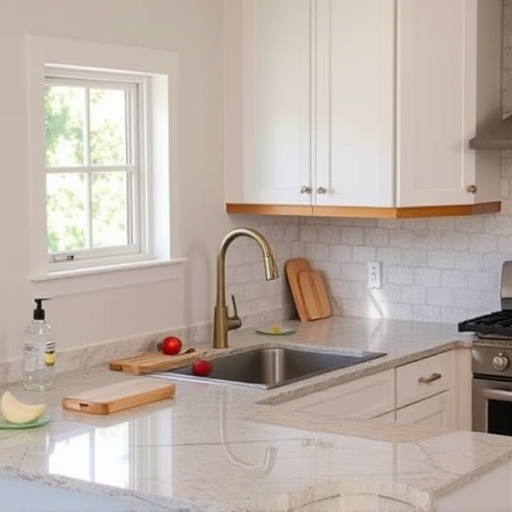
When planning a flooring remodel, it’s crucial to consider sustainable waste disposal methods that extend beyond traditional practices. Think about using eco-friendly materials and tools throughout the project. For instance, choose floor replacements made from recycled or readily renewable resources like bamboo or cork. This approach reduces your environmental footprint while offering aesthetically pleasing options for your home remodeling endeavors.
Additionally, plan to recycle or repurpose as much material as possible. Old flooring can be salvaged and used in other areas of the home or even donated to local construction sites or community projects. For materials that cannot be reused, research nearby recycling centers that accept items from bathroom renovations or general home remodeling projects. This proactive approach ensures a smoother, greener process during your flooring remodel.
Implement Efficient Collection Techniques
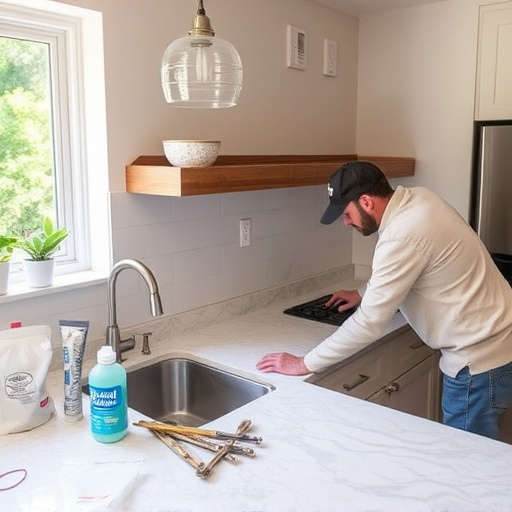
During a flooring remodel, efficient waste collection techniques are essential to ensure the project runs smoothly and cleanly. Start by setting up designated areas for different types of waste, such as materials, packaging, and debris. This streamlined approach makes separation and disposal easier, minimizing clutter and mess. Implement innovative solutions like using recycling bins specifically designed for construction waste or employing compactors for larger materials, especially if you’re handling significant amounts of flooring products during residential renovations or home additions.
Customized work often arises in flooring remodels, requiring tailored waste management strategies. Whether it’s addressing unique material compositions or optimizing space for collection points, proactive planning is key. Efficient techniques not only enhance the overall workflow but also contribute to a cleaner and more sustainable environment, reflecting well on your residential renovation efforts.
When undertaking a flooring remodel, proper waste disposal is not just an environmental responsibility but also a key aspect of efficient project management. By carefully assessing flooring waste, planning for sustainable disposal methods, and implementing efficient collection techniques, you can minimize the ecological impact of your renovation while optimizing jobsite efficiency. Remember, responsible waste handling contributes to a greener, more sustainable flooring remodel.

